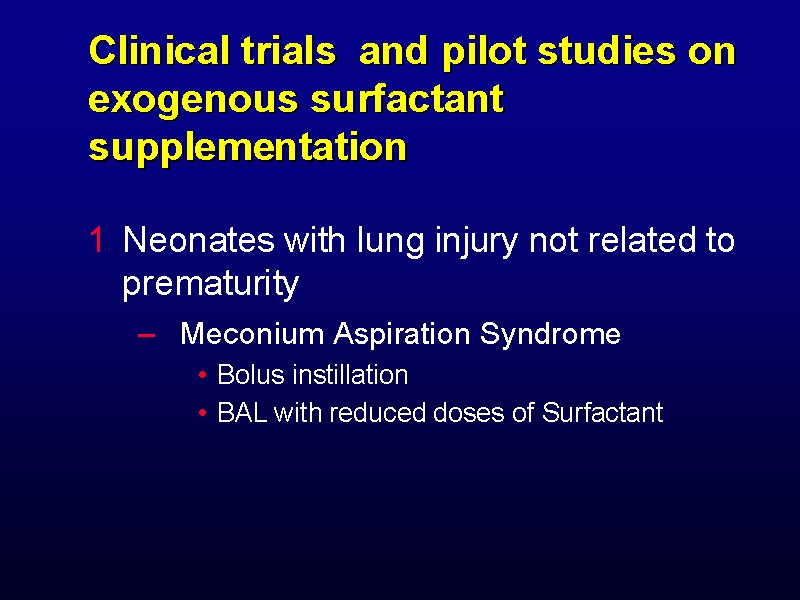Diapositiva 48 di 71
Note:
The aspiration of meconium (MAS) into the trachea and bronchi creates severe respiratory distress that in some cases can be life-threatening. In less severe conditions airway plugging and surfactant inhibition can anticipate the development of chemical pneumonitis (after 24-36 hours from aspiration) that may be complicated by bacteria overinfection. Severe cardio-circulatory and ventilatory distress can increase neonatal mortality and morbility.
Infants affected by MAS can develop altered vascular vasoreactivity and persistent pulmonary hypertension. Meconium may activate alveolar macrophages and generate increased production of superoxide anions and release of cytokines, leading to vascular leakage.
The most effective treatment of MAS is to remove rapidly as much meconium as possible from the airways in order to avoid its migration into bronchioles and alveoli. Meconium is a highly tenacious material and mucociliary transportability is very slow. For this reason it takes time to migrate from the major to the small airways. This gives some chance for aspiration and removal before it reaches small airways.
Exogenous surfactant has been described as beneficial and bronchoalveolar lavage using diluted doses of surfactant has been very promising. The place of surfactant in relation to other interventions such as high frequency oscillatory ventilation, extra corporeal membrane oxygenation (ECMO) or inhaled nitric oxide remains unclear.
Cleary GM, Wiswell TE. Pediatr Clin North Am 1998
Bun B, Curstedt T, Robertson B. Acta Paediatr 1993

